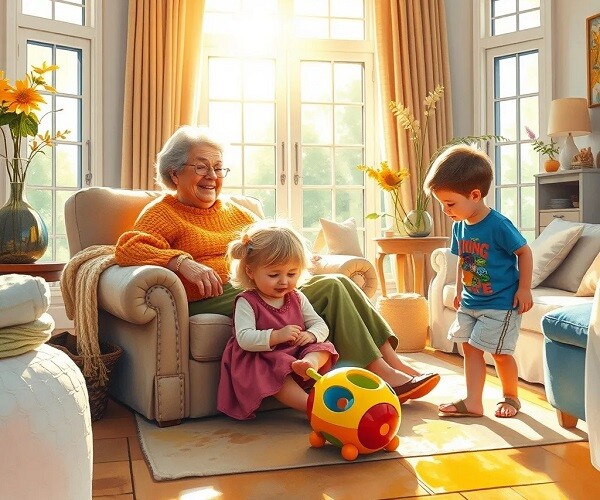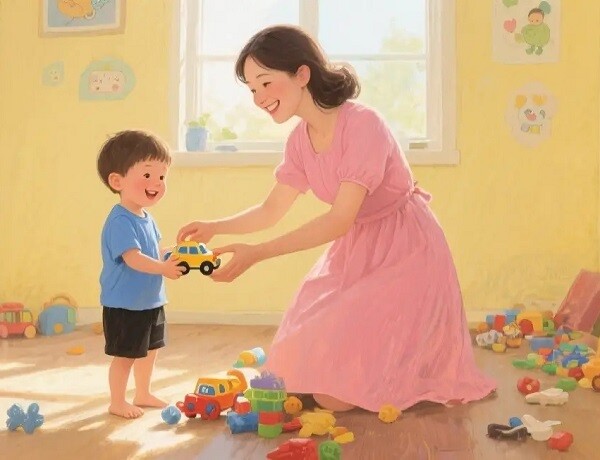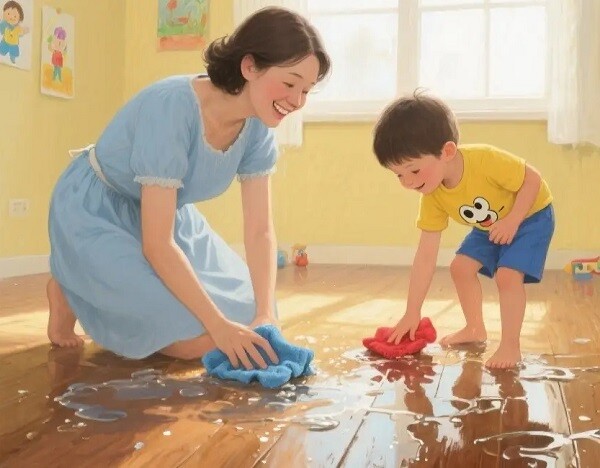Mom: How many times have I told you not to get your clothes dirty? Why don’t you ever learn?
Such scenes have become all too familiar for many parents.
A mother once wrote, I didn’t think I was treating my child badly, until one day they cried and said,
Mom, you’re a bad person, and I don’t want to be near you anymore.
In reality, parents’ constant nagging, complaining, and criticizing can unintentionally deplete their children’s courage, making them sensitive, timid, and distant from their family. Thus, parents with a long-term vision gradually learn to change themselves and adopt positive parenting methods.


Refrain from criticizing mistakes; instead, encourage and be more patient.
Many parents have a habit of demanding that their children pay attention to every detail, such as tying shoelaces, putting away toys, sitting up straight while eating, and even holding their drinks tightly to avoid spills…
When children don’t do these things perfectly, parents may unconsciously scold, complain, and bring up past mistakes. This is because, in the parents’ perception, this approach will help children recognize their behavior and improve.
However, the reality is the opposite. Children tend to become more sensitive and cautious and may even avoid doing certain things to prevent making mistakes.
Therefore, constant criticism will deplete children’s energy.

Expert suggestion: Refrain from criticizing mistakes; instead, encourage and be more patient.
For example, if toys are left out, parents shouldn’t immediately complain. Instead, play a game with your child called Sending Toys Home
and see who can put away the toys faster and better.
If your child does well, praise them: You’re faster than me! All the toys are safely home.
If they don’t do well, don’t scold them. Instead, say something like, You didn’t put things away carefully this time, but I believe you’ll do better next time.

Refrain from criticizing; encourage and be patient.

Use fun methods to motivate your child positively.
In this case, experts suggest that in modern times, when parenting concepts have evolved significantly from the past, parents should also start changing their thinking and learn to become wise parents.
A mother wrote on a family forum: When my son accidentally spilled water on the floor, instead of scolding him harshly as I used to, I smiled and said,
Honey, let’s play a game to see who can mop the floor faster!
Parents can turn their previous nagging and urging into missions
that their children will enjoy more. For example, how many minutes does it take for your child to get dressed? Does your child voluntarily clean up their toys after playing? Is your child picky about food today?

Use fun methods to create positive motivation.
When your child completes a mission or shows improvement, reward them with a small flower sticker. When they collect a certain number of stickers, take them to their favorite amusement park.
Over time, children will be able to feel the energy they receive when they accomplish small tasks in their daily lives.
Expert suggestion: Use fun alternatives to complaining and urging to positively motivate your child. Encourage and reward your child for their small tasks, gradually building their confidence and willingness to do well.

Be a guiding parent, not a blaming one.
Whether we’re adults or children, our energy is limited. If children are constantly scolded by their parents, they may become less focused on doing things well and more worried about avoiding scolding if they don’t perform perfectly.
An experiment by a Chinese psychologist showed that children who were frequently scolded by their parents had a 20% higher rate of making mistakes in their homework.
Therefore, the first thing parents should think about when their children make mistakes is not punishment but guidance on solving problems and learning from those mistakes.

Be a guiding parent.
Expert suggestion: Work with your child to solve problems, understand and support them, and learn from their mistakes. Gradually, adjust your own behavior.
For example, if your child accidentally spills paint on their clothes while painting, don’t get angry. Instead, diffuse the situation by saying, Honey, the paint got on your clothes. Remember to be more careful next time!
Then, work with your child to find a solution or tell them how to avoid getting paint on their clothes in the future.
In reality, daily conversations can drain a child’s energy, so provide them with companionship and encouragement to face the challenges of growth with renewed energy.
Parental encouragement creates positive energy, making it easier to overcome difficulties. Explore the world with your child, share joyful moments, and learn from new experiences so that every day becomes an exciting journey.
“4 Magical Phrases to Use When Your Child Argues Back: A Guide for Parents”
“The Power of Effective Communication: Transforming Defiant Children into Obedient Angels.
As parents, we hold the key to unlocking our children’s potential for obedience and respect. Our communication style plays a pivotal role in teaching our defiant little ones to become more compliant and understanding.”





































